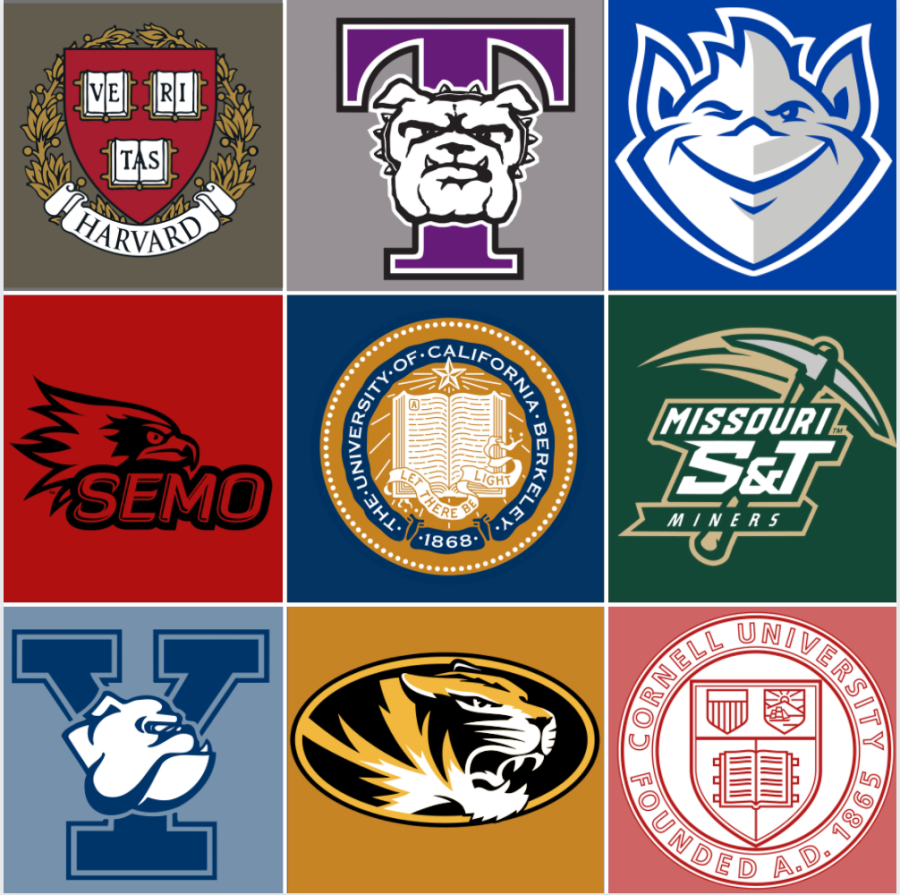Applying to College: Where to Even Begin?
There are almost 4,000 choices for colleges in the US, not to mention out of country colleges. The possibilities are endless so finding the right choice is crucial.
November 16, 2021
Applying for college. Writing essays. Deciding where to go. Wondering if it’s affordable. If it’s too far from home or too close. High school students have an endless supply of questions about college. Pattonville’s college and career counselor offers some insight into the college application process.
A lot of juniors want to start the college process as soon as they can. Ms. Lurashi poses the question “Why do you want to go to college?” to juniors. She pushes students to ask themselves this question before even looking into colleges.
“Because college can be hard and if you don’t know why you’re there or if you’re there because someone else wants you to be there but you don’t want to be there, you won’t be successful,” Lurashi says. Ask yourself what you want to get out of college and what you want your experience to look like. Once you have an idea of what you want, you can start researching colleges that fit those wants.
The next step for juniors is to start testing. The earlier you start taking standardized tests, the more time you have to retake it until you reach your target score. Colleges do not have a preference on whether you take the SAT or ACT. There are other test options if college is not in your future that focus more on career as well.
Pattonville will pay for you to take either the SAT or the ACT one time during your junior year, so it is important to take advantage of that. Ms. Lurashi explained, ““They are much more alike than different. They’re both standardized tests that focus primarily on English and math. Both timed, they both cost. Colleges don’t care which you take. They can look at the equivalency between the two.”
The biggest differences between the two are the ACT’s dedicated science section that the SAT doesn’t have, and the ACT focuses more on Geometry whereas the SAT focuses on Algebra. Students should take a practice test for both in order to figure out which test they can do better on. Since colleges don’t care which you take, you should take the one you’ll do better on.
Honors English teachers at Pattonville try to include college preparation into their curriculum. They start in Honors 2, sophomore year, by assigning a project that carries over into Honors 3. The students have to attend two colleges, take extensive notes, and then create a video comparing the two colleges.
“Junior year there is quite a bit of college prep in Honors English 3: students make an iMovie comparing and contrasting the schools they visited, we invite admissions counselors from a variety of schools to answer students’ questions, we do ACT prep and Quack SAT vocabulary, we practice a college application essay, and Ms. Luraschi comes in to talk to students,” Ms. Moritz, English teacher, said.
These assignments are all centered around preparing students for college. The hope is that by application time, students are more prepared and don’t get too overwhelmed. “If we can teach the appropriate skills within assignments that will also allow students to explore their next educational or career step, the objective/purpose is so much clearer to students, which makes the sell a lot easier,” Ms. Adam, Chair of the English Language Arts Department, said.
“There is a college out there for everybody,” said Ms. Lurashi. While applying to college and figuring out all the semantics can be overwhelming, there are support systems and people ready to help. Starting as early as possible with asking yourself these questions, will go a long way in the college process.


